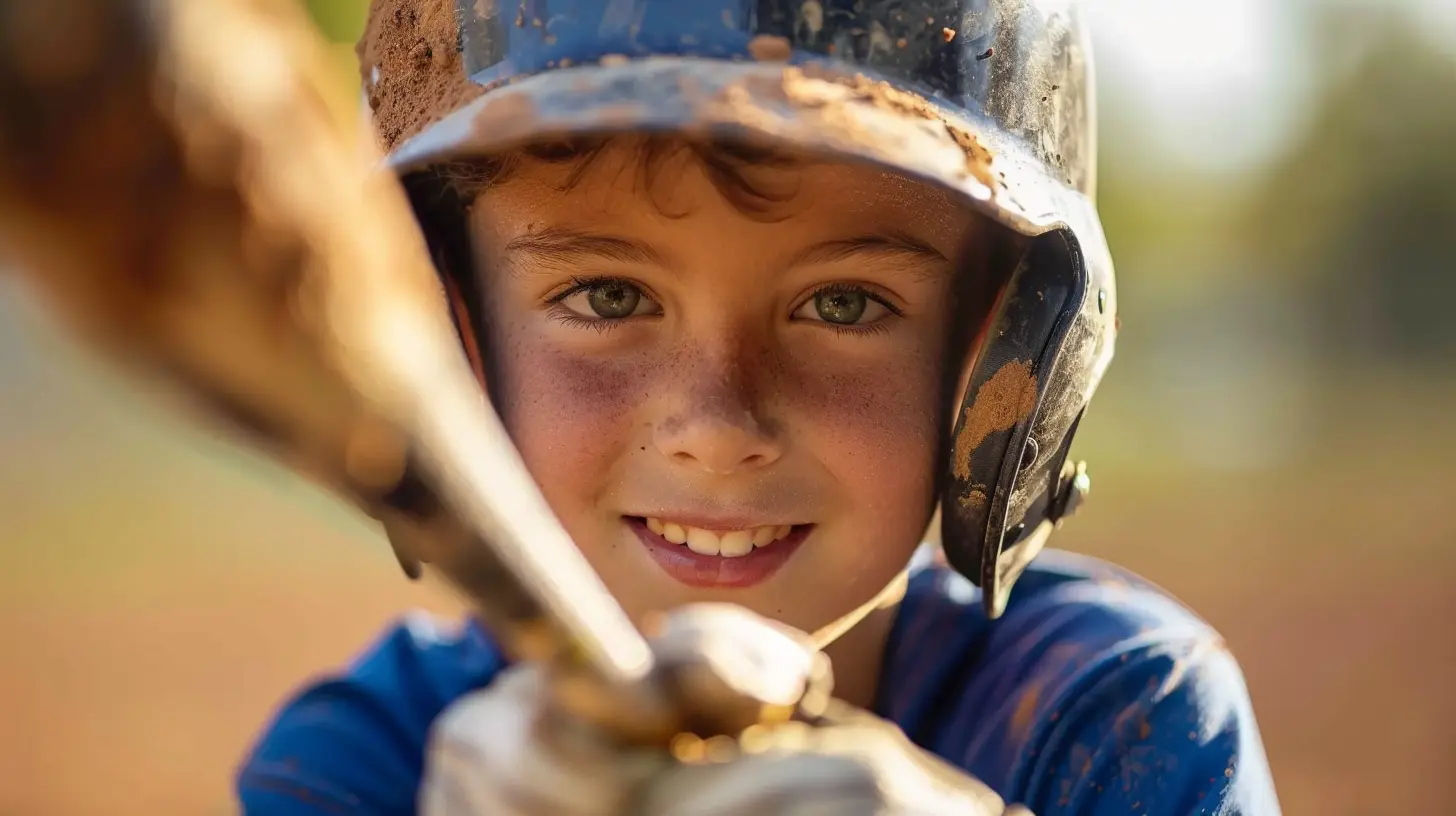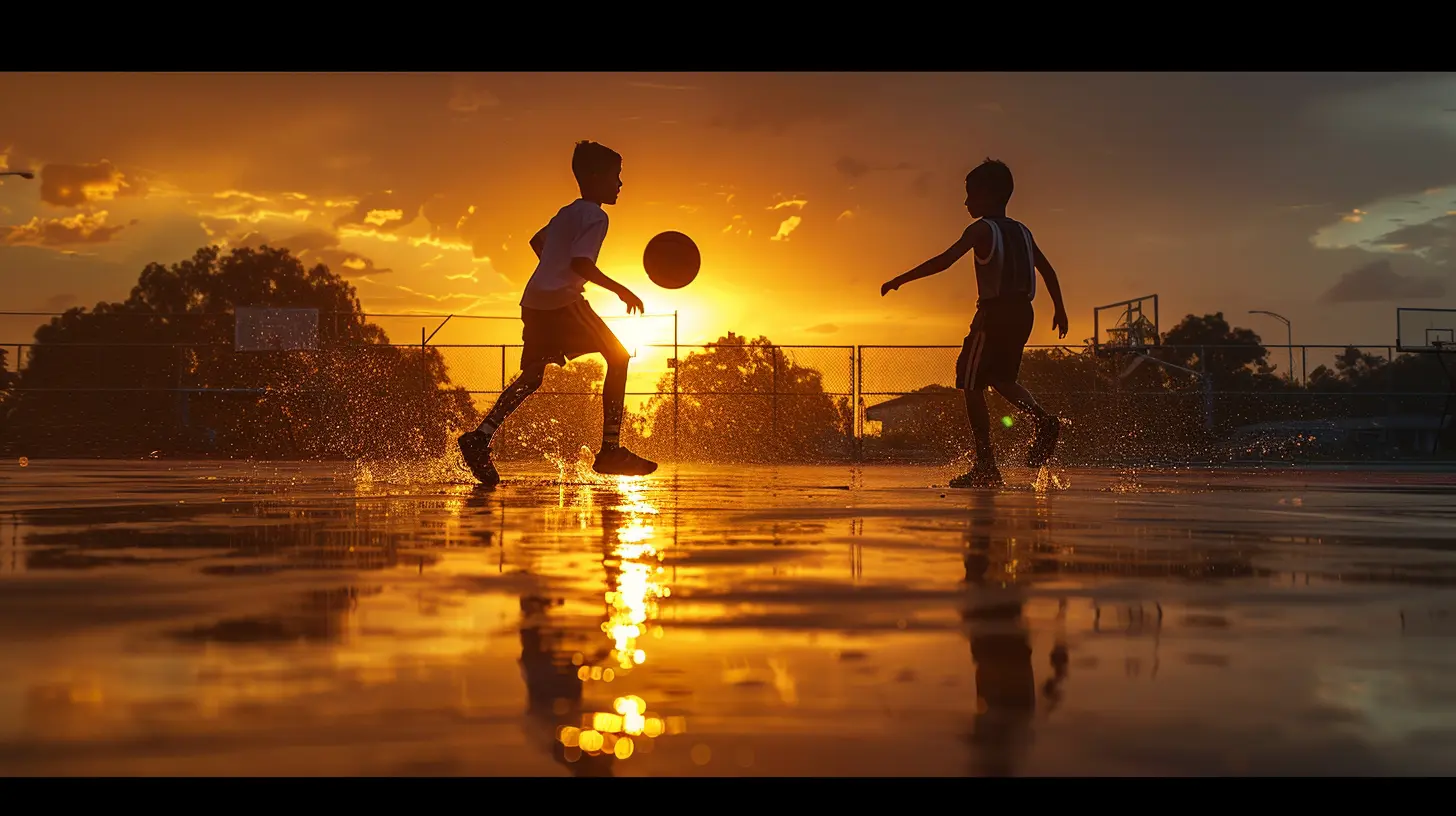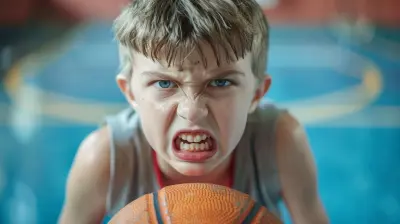Building Confidence Through Sports: A Parent's Role
3 June 2025
Raising a confident kid is no easy task, is it? As parents, we all want our children to grow up believing in themselves, ready to face the world head-on. But let’s be real – getting a child to see their own potential can sometimes feel like trying to assemble IKEA furniture without the manual. Here’s the thing: sports can be that missing piece that pulls everything together. Yep, sports. It’s not just about winning trophies or breaking records; it’s about helping kids develop self-esteem, resilience, and a sense of belonging.
But where do parents fit into this equation? Think of yourself as the coach behind the coach. You’re not there to score the goals for your kid, but you’re definitely on the sidelines cheering and making sure the snacks are top-tier. Let’s dive into this topic and see how sports can be a game-changer for your child’s confidence – with a little guidance from you. 
Why Sports and Confidence Go Hand in Hand
Ever noticed how kids who play sports seem to walk a little taller, smile a little wider, and speak up a little louder? That’s no coincidence. Sports create a whole set of opportunities for kids to succeed, fail, and grow.When your child makes a great pass during a soccer game or finishes a tough swim lap, it’s like adding bricks to their confidence wall. They start to think, “Hey, if I can do this, what else am I capable of?” It’s empowering!
And don’t forget: sports are about more than physical achievements. They teach kids how to communicate, lead, and fail gracefully. That last one can sting a bit, but trust me, learning to recover is one of the biggest confidence boosters out there. 
The Parent's Role: Cheerleader, Motivator, Safety Net
As a parent, your role in this confidence-building journey is absolutely pivotal. Think of yourself as the foundation while your child builds their skyscraper of self-esteem. But instead of cement and steel, you’re using encouragement, support, and advice.1. Encourage Without Pushing
There’s a fine line between nudging your kid out of their comfort zone and shoving them so far they panic. If your child’s interested in trying a sport, great! If they’re hesitant, try asking questions like, “What’s holding you back?” or “What’s the worst that could happen?”Sometimes, kids just need a little reassurance that they’re not going to be judged or ridiculed. And remember, enthusiasm is contagious. If you’re excited about their first day of basketball practice, they’ll likely feel excited too.
2. Focus on Progress, Not Perfection
Let me let you in on a secret: kids don’t need to be the next LeBron James or Serena Williams to benefit from sports. The real magic lies in the small wins. Maybe your kid finally dribbled a basketball without tripping over their own feet. Celebrate that!When you focus on their progress rather than how many points they scored, you teach them to value self-improvement over external validation. And that’s a game-changer for lifelong confidence.
3. Be Their Biggest Fan, Win or Lose
Nobody likes losing, and kids are no exception. But here’s where you come in – reminding them it’s not the end of the world. A simple “I’m proud of how hard you tried today” can shift their perspective from “I failed” to “I’m learning.”Also, let’s be honest: if you’re the parent yelling at the referee or critiquing every missed shot, your kid’s confidence will take a hit. Stay positive, supportive, and encouraging – even when you’re dying to scream, “OFFSIDE? SERIOUSLY?!” 
The Life Lessons Sports Teach (Beyond the Game)
Sports are essentially life lessons dressed up in jerseys and team huddles. They’re like that sneaky vegetable you hide in a kid’s mac and cheese – they don’t realize they’re getting something good for them.1. Resilience: The Power of Bouncing Back
Picture this: your kid misses the game-winning shot. Cue the tears, frustration, and maybe even some self-doubt. As heartbreaking as it is to watch, this is where resilience is born.Through sports, kids learn that failure isn’t a dead-end – it’s a stepping stone. They’ll realize it’s okay to mess up and that what truly matters is showing up for the next game, ready to try again.
2. Teamwork: The Beauty of Collaboration
Sports teach kids that it’s not all about them. Whether they’re passing the ball, cheering on a teammate, or practicing drills together, they learn how to be part of something bigger than themselves.Teamwork builds empathy, communication skills, and respect – all crucial ingredients for confidence. After all, knowing you have a crew backing you up is a surefire way to feel unstoppable.
3. Discipline: The Art of Sticking With It
Let’s be real – waking up for 7 a.m. practice isn’t exactly fun. But sticking to a schedule, showing up consistently, and giving it their all teaches kids discipline. And discipline? That’s like the secret sauce of confidence.When your child realizes they can commit to something and see it through, they’ll start applying that mindset to other areas of their life – school, friendships, hobbies, you name it. 
Navigating Challenges Together
Not everything about sports is sunshine and rainbows. There will be tough moments – injuries, losses, conflicts with teammates or coaches. These are the times when your role as a parent is particularly crucial.1. Handling Setbacks
Nobody wins every game, and that’s okay. In fact, losing teaches kids humility and resilience. But they’ll need your help putting things into perspective. Instead of focusing on the defeat, ask reflective questions like, “What did you learn from today?” or “What can you do differently next time?”2. Dealing With Pressure
Sometimes, kids feel pressured to perform – whether it’s from parents, coaches, or themselves. If your child seems overly stressed, remind them that sports are supposed to be fun. At the end of the day, it’s about growth, not perfection.3. Navigating Social Dynamics
Not every teammate will become your child’s best friend, and that’s okay. Encourage your kid to treat everyone with respect, even if they don’t vibe with everyone on the team. If conflicts arise, use them as teachable moments to discuss communication and problem-solving.The Confidence Ripple Effect
Here’s the coolest part: the confidence your child builds through sports doesn’t stay on the field. It spills over into every aspect of their life.That kid who used to shy away from speaking up in class? Suddenly, they’re raising their hand. The teenager who doubted their abilities? Now, they’re auditioning for the school play or applying for leadership roles.
Sports aren’t just about building strong bodies – they’re about building strong minds and spirits. And as their parent, you have a front-row seat to watch it all unfold.
Final Thoughts
At the end of the day, sports are so much more than games. They’re an avenue for growth, a stage for triumphs (and failures), and a playground for learning life’s most important lessons. And as a parent, you’re the behind-the-scenes MVP who makes it all possible.So, sign your kid up for that team, lace up their cleats, and pack those post-game snacks. Watch as they find their footing, face challenges, and come out stronger on the other side. Confidence starts small but grows with every sprint, pass, and jump – and you’ll be there every step of the way.
all images in this post were generated using AI tools
Category:
Kids And SportsAuthor:

Steven McLain
Discussion
rate this article
3 comments
Zephyrine Becker
Sports can be a powerful tool for building confidence in children. As parents, our role is to encourage participation, celebrate effort over outcome, and reinforce the value of teamwork. By fostering a positive environment, we help our children develop resilience and self-assurance that extends beyond the playing field.
June 16, 2025 at 4:32 AM

Steven McLain
Absolutely! Encouraging participation and celebrating effort not only builds confidence in children but also instills valuable life skills like resilience and teamwork. It's essential for parents to create a supportive environment to nurture these qualities.
Brooks Fry
Great insights! Supporting our kids in sports not only boosts their confidence but also teaches valuable life lessons. Let’s encourage their passion and celebrate every small achievement together!
June 8, 2025 at 3:04 AM

Steven McLain
Thank you! I completely agree—supporting our kids in sports is essential for their confidence and personal growth. Let's keep celebrating their achievements together!
Alyssa Martin
Empowering kids through sports fosters resilience and self-esteem.
June 5, 2025 at 2:39 AM

Steven McLain
Absolutely! Sports provide kids with challenges that build resilience, while also boosting their self-esteem through achievement and teamwork.



